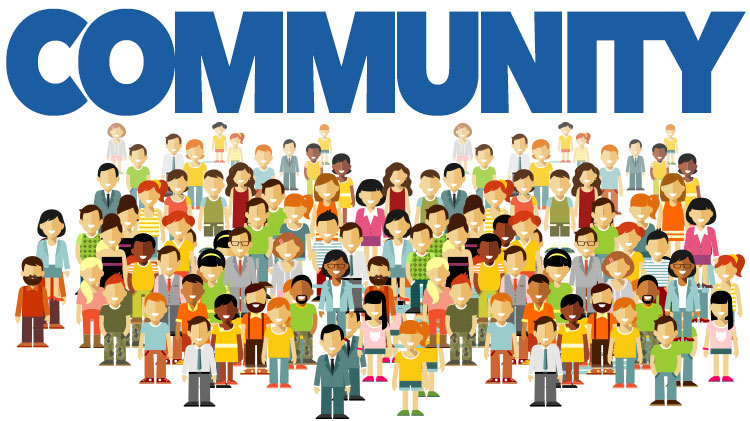Being of Service to Others
For the last few weeks I have been with family
every day and that’s unusual for me as my family
lives up north and out west.
My firstborn son came to visit at the end of
January to get out of the cold and snow of the
harsh Michigan winter. He stayed with me for a few
days and I left him at my house, while I took off
to Arizona to see my youngest son.
He is very active in the community of Tucson and
has been involved in community service for years.
This year the “Greater Tucson Leadership group”
was proud to present him the “Man of the Year” award.
This year marks the 65th anniversary of the awards
program.
The awards program honors a man and woman who have
distinguished themselves for active support of
community projects, demonstrated excellence in
leadership, and who are a source of positive
influence and inspiration for others.
The Founders Award, is a
lifetime achievement recognition, cites an
individual who has demonstrated significant
long-term community involvement and
accomplishments and who has helped to shape the
community in a positive manner with merit and
dedication.
The honorees are recognized for outstanding
leadership, distinguished contributions and
dedication to improving the quality of life in the
community.
My son, Damion, Realtor, Long Realty, received the
first-ever GTL Alumni Excellence Award.
This was a great honor for him as well as our
family. I congratulate him for all the work he has
done in support of others.
It is said that Karma is, the good or bad actions
a person takes during a lifetime. Good actions
include serving others via generosity and
compassionate help. If a person has good Karma
throughout a lifetime, then he can expect to be
“reborn” in what is referred to as the cycle of
rebirth.
Practicing good Karma could also lead to a
person’s attaining Nirvana — complete
enlightenment and liberation from suffering — or
a Bodhisattva, someone dedicated to helping others
attain Nirvana.
In the early Buddhist scriptures, priority was
given to the service of the sick. Buddha made the
rules for the monks and nuns of his sangha and in
every case he added one word agilano, “if not
sick.” That is, a sick person was exempt from
observing that rule. He advised his disciples to
always look after the sick, giving them motherly
care and serving them with a compassionate heart.
He also prescribed various kinds of medicine for
various kinds of diseases and also gave guidelines
on how to prepare those medicines. Once Buddha
himself went to serve an ailing monk suffering.
There was none to look after him as the monk was
very selfish and did not care for others. But
Buddha immediately rushed to him, bathed him with
fresh water, changed his clothes and made him lie
on a cot. Buddha was distressed that the sick monk
was left uncared for. He invoked and addressed the
Buddhist monk
thus:
“O monks, here there are no parents and no
relatives who will look after you in your illness.
You have to look after one another in any kind of
distress. O monks, you will consider service to a
sick one as a service to me. If one has fallen
ill, you should not considered whether he is
senior to you or junior. A sick person deserves
service from anyone.”
I truly admire and respect people who serve others
and make lives better no matter if it’s helping a
loved one, a friend, your community, your city,
your state or the world.
If I can be of service to you or your family give
us a call at 305-407-0120 and book an appointment
to day.
I wish you the best in your Health, Wealth and
Happiness
Dr. Wu Dhi
o
Dr. Wu Dhi
http://energymedicineflorida.com
http://qigonginnercircle.com
Befriend me on Facebook:
http://energymedicineflorida.com/facebook
Subscribe to my YouTube channel:
http://youtube.com/drwudhi
Dr. Wu Dhi was born Sherwood Swartz but mostly
known as ‘Woody’ to friends and family. As a
student
of various traditions he as received various names
and titles over the years as is appropriate in
those
schools. Among these names was Wu Di, very similar
to the pronunciation of Woody, in China the name
means ‘has no enemies’. Wu Di was later renamed by
a Tibetan Lama to Wu Dhi with an ‘h’. Although
this
may not seem like that much of a change from Wu Di
or even Woody for that matter, it is in fact a
high
honor to receive such a name directly from a Lama.
Dhi in this case is the Sanskrit seed syllable
‘Dhi’ and
associated with the great wisdom holder
Manjurshri.
Dr. Wu Dhi has been a pioneer in alternative
health
care for over 30 years and a master of Medical Qi
Gong. Dr. Wu Dhi completed his advance studies in
neurology under the direction of Professor Sun at
the
prestigious Heilongjiang, University of
Traditional
Chinese Medicine in Harbin P.R.China.

